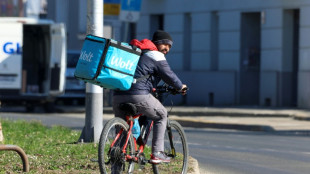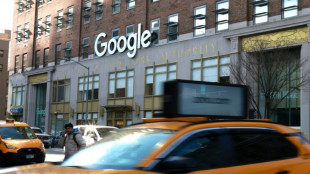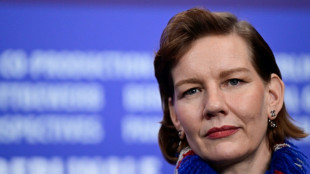UK economy stalls in July in fresh government setback
Britain's economy stagnated in July, official data showed Friday, dealing another blow to the Labour government after a turbulent week for Prime Minister Keir Starmer.
Gross domestic product flattened in the month following output of 0.4 percent in June, the Office for National Statistics said in a statement.
The government has suffered two high-profile departures in the past week, firstly Starmer's deputy Angela Rayner who resigned for underpaying a property tax.
The PM on Thursday sacked Peter Mandelson, his ambassador in Washington, following fresh revelations about the diplomat's friendship with sex offender Jeffrey Epstein.
Whilst the July GDP figure was in line with market expectations, limiting impact on the British pound Friday, the government acknowledged difficulty in driving economic growth.
"We know there's more to do to boost growth, because, whilst our economy isn't broken, it does feel stuck," a Treasury spokesperson said in a statement as Labour prepares for its annual budget announcement in late November.
The latest data showed that a 1.3-percent drop in production offset expansion to the services and construction sectors.
"The stagnation in real GDP in July shows that the economy is still struggling to gain decent momentum in the face of the drag from previous hikes in taxes and possible further tax rises to come in the budget," noted Paul Dales, chief UK economist at Capital Economics research group.
Finance minister Rachel Reeves last week promised to keep a "tight grip" on public spending, as she set November 26 for her budget speech.
Britain's economy has struggled to grow after Reeves hiked taxes and slashed public spending after Labour won a general election in July last year.
Separate official data Friday showed Britain's exports of goods to the United States rebounded in July -- but remained below the level seen before US President Donald Trump launched his tariffs assault on the world.
US exports jumped by £800 million ($1.1 billion) in July after London and Washington struck a trade agreement that reduced some of Trump's tariffs, notably on UK-made vehicles.
The US president next week makes an unprecedented second UK state visit, which includes a bilateral meeting with Starmer and a banquet hosted by King Charles III.
U.Moon--SG

 London
London

 Manchester
Manchester
 Glasgow
Glasgow
 Dublin
Dublin
 Belfast
Belfast
 Washington
Washington
 Denver
Denver
 Atlanta
Atlanta
 Dallas
Dallas
 Houston Texas
Houston Texas
 New Orleans
New Orleans
 El Paso
El Paso
 Phoenix
Phoenix
 Los Angeles
Los Angeles



